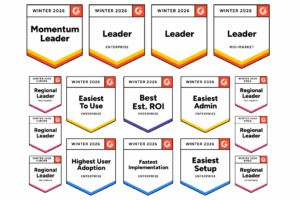
Transaction Matching
Transaction Matching compares large volumes of data—like sales, bank transactions, or vendor payments—to make sure everything lines up and nothing slips through the cracks.
Teams often sift through spreadsheets or manually check mismatches between systems. It’s time-consuming, error-prone, and hard to scale during peak periods.
Trintech automates the matching of transactions using rule-based logic and intelligent filters, dramatically reducing manual work and catching more errors before they hit the books.
How AI Financial Close Will Help
When deployed, GenAI and Agentic AI add learning and prediction—suggesting match rules, spotting anomalies, and escalating only the exceptions that matter. These AI agents work continuously and adapt over time using a secure LLM.
Business Outcomes
Faster match cycles, cleaner data, reduced fraud risk, and more time for the team to focus on what’s truly off—not just what’s unmatched.
Daily Reconciliation
Daily reconciliation ensures daily financial activity (such as bank movements or reserve accounts) is accurate and posted in real time.
High-frequency reconciliations overwhelm staff, especially with multiple bank feeds and systems involved. Errors or delays increase risk and reduce liquidity visibility.
Trintech connects to daily sources and automates reconciliations with predefined rules, ensuring real-time tracking and rapid exception flagging.
How AI Financial Close Will Help
As AI continues to mature, Agentic AI will continuously monitor feeds, predict issues, and recommend (or even actions automatically) resolutions. GenAI will explains anomalies in plain language—no spreadsheets required.
Business Outcomes
Improved liquidity management, early error detection, and less daily chaos for finance teams trying to stay ahead of their ledgers.
Account Reconciliation & Substantiation
This is the process of validating every balance sheet account, ensuring what’s reported is supported and accurate.
Reconciliations are still highly manual and checklist-driven. Key risks and exceptions often get buried in the noise of low-risk accounts.
Trintech automates balance sheet reconciliations, risk-rates accounts, and centralizes documentation for audit readiness and control.
How AI Financial Close Will Help
AI will identify which accounts are likely to cause problems and prioritizes them. It will learn from past issues, suggests fixes, and will even draft substantiation narratives.
Business Outcomes
Tighter controls, fewer audit surprises, and a finance team that can shift from hunting for problems to resolving them proactively.
Intercompany Management
This involves managing financial transactions between different entities within the same company, ensuring automatically they reconcile correctly and timely.
Intercompany mismatches are very common, hard to trace, and often discovered too late—slowing down consolidation and increasing compliance risk.
Trintech standardizes and automates intercompany workflows, validations, and settlements across multiple ERPs and regions.
How AI Financial Close Will Help
AI predicts which transactions are likely to mismatch, explains why, and will potentially even guide resolution paths. When deployed, Agents will automatically manage the flow so nothing gets stuck or overlooked.
Business Outcomes
Faster, cleaner intercompany closes—with fewer disputes, less back-and-forth, and better global alignment.
Close Management
Close Management orchestrates the tasks, approvals, and timelines that keep your month-end close moving forward.
Finance teams still rely on static checklists, emails, and spreadsheets to manage close activities—leading to bottlenecks, missed steps, and last-minute surprises.
Trintech provides automated workflows, real-time dashboards, and centralized task management to keep everyone on track and accountable.
How AI Financial Close Will Help
When deployed, Agentic AI predicts delays, highlights dependencies, and flags high-risk tasks. GenAI will even be able to summarize status or answer “where are we stuck?” in real-time.
Business Outcomes
A faster, more predictable close—fewer surprises, clearer accountability, and more time for analysis instead of firefighting.
Help Capability & Knowledge Base – Trintech AI Use Case
Trintech’s AI CoPilot offers use cases that are practical and built for the financial close. In this video, learn how Trintech’s CoPilot provides instant, tailored responses on how to use the application and even guide users on how to edit or configure settings, such as match rules.
More Videos
Onboarding New Team Members – Trintech AI Use Case
Trintech’s AI CoPilot offers use cases that are practical and built for the financial close. In this video, learn how Trintech’s CoPilot makes onboarding new members faster, smarter and more consistent by generating a multi-week onboarding plan tailored to users’ roles and permissions.

Journal Entry Management
This is the process of preparing, approving, and posting journal entries into the general ledger—accurately and with the right controls.
Manual preparation, unclear approvals, and inconsistent documentation create risk and inefficiencies across the close.
Trintech automates workflows for journal entry creation, risk scoring, and approval routing—enforcing controls and reducing manual lift.
How AI Financial Close Will Help
As AI continues to be deployed in the organization, AI will be much better suggesting journal entries, flags anomalies, and predicts where errors might occur. GenAI will explain entry rationale or recommend the right classification.
Business Outcomes
Fewer rework cycles, stronger controls, and a journal process that moves faster—with confidence and transparency built in.



